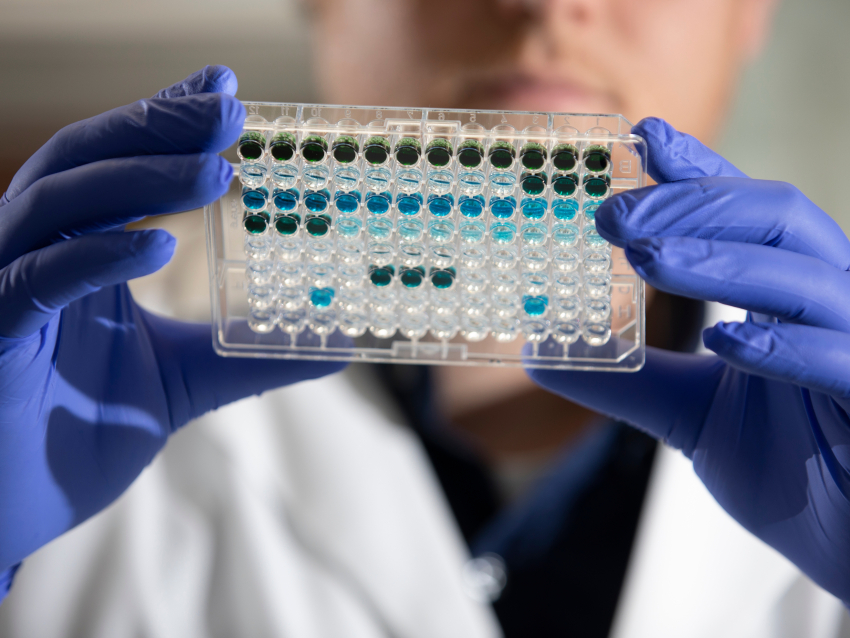
Getting in the Way of Cancer—Cell Signaling Interaction May Prevent Key Step November 06, 2017
New findings from University of Kentucky faculty published in Scientific Reportsreveals a novel cell signaling interaction that may prevent a key step in cancer progression.
Kentucky continues to lead the nation in incidence and death rates from lung cancer, and the University of Kentucky College of Pharmacy is committed to reducing these numbers.
Lung cancers are often diagnosed in later stages, with very few treatment options available. Often patients develop a resistance to a targeted therapy, resulting in a need for a variety of therapies that can be administered in stages or coupled together.
A collaboration between the UK College of Pharmacy (UKCOP) and the Department of Statistics in the UK College of Arts and Sciences is working to address this problem. The project is the work of Madeline Krentz Gober, a recent graduate of the UK College of Pharmacy’s Graduate Program in the lab of UKCOP faculty member Penni Black. Staff scientist James Collard and UK College of Arts and Sciences faculty member Katherine Thompson also contributed to the findings.
Previous work from the group established that a collection of microRNAs—small RNA that plays a role in regulating biological process like growth and proliferation—could predict sensitivity of non-small cell lung cancer cells to erlotinib, a drug that is effective in treating lung cancer in certain patients.
Further investigation into this collection of microRNA genes revealed a previously unknown relationship between the role of transforming growth factor TGFβ in initiating metastasis and epidermal growth factor receptor (EGFR) signaling non-small cell lung cancers.
Essentially, microRNA molecules that alter TGFβ activity may prevent a key step in metastasis for cancer progression known as epithelial-mesenchymal transition, and this interaction may also require the activity of EGFR, perhaps unappreciated in the initiation of metastasis.
“Getting the right drugs in the right patients is critical to improving cancer outcomes. Dr. Black’s work is an important step in predicting which patients benefit most from erlotinib treatment,” said Jill Kolesar, Co-Director of the Molecular Tumor Board at UK’s Markey Cancer Center.
Ongoing work in the Black lab seeks to uncover biomarkers of response and toxicity to new immunotherapeutic agents used in the fight against lung cancer.
